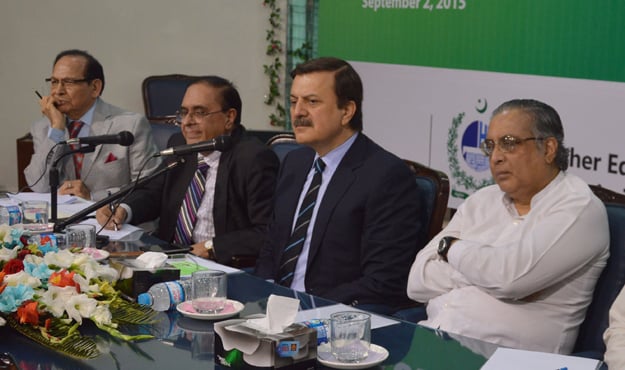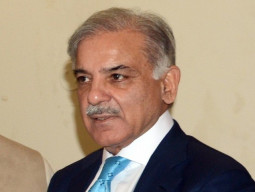
Knowledge economy, substantial investment in research and higher education are the pillars of development. Nations that have realised the importance of knowledge economy and invested heavily in their human resources have leaped forward.
This was the crux of a talk given by Prof Dr Attaur Rahman on “Building a knowledge economy” at the Higher Education Commission (HEC) here on Wednesday.
He described youth as Pakistan’s potential and suggested that a visionary, honest and technologically competent government can transform the country into a knowledge economy.
Dr Rahman highlighted the importance of knowledge, citing the examples of Finland, Malaysia and Singapore.
“It is not material resource but knowledge that puts countries on the track of development.”
He mentioned that Singapore was a nation, which had one-fourth the population of Karachi but exports from a single company of that country was double than the whole of Pakistan.
“Malaysia decided to spend at least 25 per cent of its budget on education 30 years ago and today it accounts for 86.5 per cent of the total high-tech exports of the Muslim world and is ranked ninth in the world in this category,” said Dr Rahman.
He also stressed the need for improving quality of education in universities. “Universities do not need to be beautiful; they need to be internationally ranked; international ranking depends on number of quality PhDs and research papers produced,” Dr Rahman emphasised.
He pointed out four key pillars of progress in a knowledge economy, that is education, science and technology, innovation and entrepreneurship and governance.
Throughout the talk, he highlighted the need to send scholars to top universities of the world for higher education.
“They will come back, who does not want to return home? Legal bonds would not bring scholars back though; they should be given challenging opportunities to return,” suggested the former chairman of the Higher Education Commission (HEC).
He suggested that the HEC should send about 2,000 students to top universities abroad every year because the key for Pakistan’s progress is education.
“The progress is not just connected with higher education but primary education also because the foundation is laid there.”
Importance must also be given to social sciences and not just to engineering and natural sciences in order to truly create a balance, he said.
He mentioned that a few years ago, some of Pakistani universities were ranked among top 500 institutes of the world for natural sciences but it is not the case anymore.
Dr Rahman gave several recommendations including creation of a revolving innovation fund to support indigenous technology development in public and private sectors. He also suggested restructuring of S&T organizations, framing a legally binding technology transfer policy, encouraging research and development and promoting high tech manufacturing in private sector.
He also recommended improving quality of technical training institutes, increasing the number of masters and PhD scholars sent abroad.
The talk was arranged by the HEC in collaboration with the Institute of Policy Reforms (IPR) and attended by economist Dr Hafiz Pasha, Planning Commission’s former Deputy Chairman Dr Akram Sheikh, Dr Mahmoodul Hassan Butt, IPR president Humayun Akhtar Khan, vice-chancellors, academics, researchers and a large number of students. Over 60 universities were connected through video-conferencing.
Published in The Express Tribune, September 3rd, 2015.












































COMMENTS (1)
Comments are moderated and generally will be posted if they are on-topic and not abusive.
For more information, please see our Comments FAQ